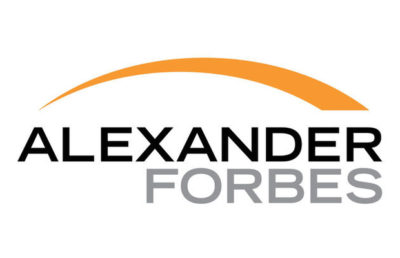
As one of the largest economies on the continent, the world has been focused on South Africa and its recovery from the Covid-19 Pandemic. Whatever momentum we have gained since the start of our recovery efforts has been derailed by the recent spate of protests and looting.
Alexander Forbes takes a critical look at this in its latest economic update.

Photo By: Artyom Korshunov via Unsplash
Recovery continues in SA’s manufacturing and mining production
South Africa’s manufacturing production increased by 35.3% y/y in May 2021 from 88.1% in April 2021, primarily due to low base effects from last year.
Main positive contributions came from the motor vehicles manufacturers, parts and accessories and other transport equipment, basic iron and steel, non-ferrous metal products, metal products and machinery. The manufacturing industry increased by 1.6% in the first quarter of 2021, contributing 0.2 of a percentage point to GDP growth.
Mining production increased by 21.9% y/y in May 2021 from 117.4% growth in the previous month and below market expectation of a 32.8% growth. It was the third straight month of rising mining activity, reflecting the gradual recovery from the coronavirus pandemic impact a year ago. The largest positive contributors were Platinum Group Metals (PGMs), gold, iron ore, and manganese ore. Overall, the mining and quarrying industry increased by 18.1% and contributed 1.2 percentage points to GDP growth. The mining and manufacturing sectors contribute 21% to the total SA GDP combined, the positive data print in May 2021 suggests that the two sectors will contribute positively to Q2 2021 GDP, however, ongoing protests and lockdown restrictions caused by the surging coronavirus infections may negatively impact the sectors going forward.
South Africa’s retail trade grew by 15.8% from a year earlier in May of 2021, following a revised record 95.7% jump in April 2021 and beating market expectations of a 12.2%. The ongoing unrests will negatively impact the performance of the sector in Q3 2021, as some factories and warehouses have been destroyed.
World Bank sees a stronger SA growth this year
World Bank upwardly revised South Africa’s 2021 growth forecast to 4% from the earlier projection of 3.5%, compared to the South African Reserve Bank (SARB) of 4.2% as the country benefits from a recovery in global growth, mainly in China and the US, two of its main trading partners and favourable commodity prices. However, low growth and high unemployment are the result of long-standing structural constraints which have adversely affected the competitiveness of local firms.
These constraints include a lack of skills in the labour force, skewed distribution of land and productive assets, the high cost of non-tradable inputs such as electricity and limited competition in production markets. They cited material policy uncertainty and deteriorating state capacity as constraints and called for reforms to address these constraints. The bank highlighted that government can strengthen hiring by temporarily extending tax incentives, suspending rules that increase labour costs and introducing measures to support entrepreneurship and self-employment.
However, the ongoing protests, rising coronavirus infections in the country and the slowdown in China poses downward risks to the economic outlook.

Photo By: Gallo Images
Ongoing protests threaten economic recovery
On Monday 12 July 2021, South African President Cyril Ramaphosa deployed the military in Kwazulu-Natal and the Gauteng province to quell the ongoing protests as the looting and the burning of the buildings escalate, resulting in the loss of lives and over a thousand arrested.
The economics security aspects projected to international investors is that South Africa is an unsafe place to invest. This will have consequences for foreign direct investment. The general policy environment will be weakened because the psychology of the state is in managing Covid-19 and the instability thus it takes efforts away from economic reforms. Also, some businesses may opt not to return to some of the areas which may result in the permanent loss of jobs and investment.
Measuring the economic damage so far (for KZN only):
- over R1.5 billion worth of loss in stock affected;
- R15 billion in damages to property and equipment;
- another 150 000 jobs at risk and close to 1.5 million people are at home without income due to unrest;
- about 50 000 informal traders affected;
- an estimated 40 000 formal businesses impacted, including small businesses and a large portion of those who may never recover;
- the total loss of GDP in the region is said to be over R20 billion; and
- on Sunday 11 July 2021, President Cyril Ramaphosa kept South Africa on level 4 lockdown for an additional two weeks (to 25 July) as coronavirus cases remain high due to the infectious Delta variant.
Level 4 restrictions include:
- travel in and out of Gauteng for leisure is prohibited (the province accounts for more than two-thirds of infections);
- all social, political, religious and other gatherings remain prohibited;
- a curfew remains in place from 9pm until 4am, and only those with permission to do so may leave their homes during this time;
- the sale of alcohol remains prohibited;
- schools will remain closed until the 26th of July 2021;
- it remains mandatory to wear a mask that covers your nose and mouth whenever you are in public;
- restaurants will be able to operate while observing strict health protocols, not accommodating more 50 pax or more than 50% of their normal capacity; and
- certain other venues, such as gyms and fitness centres may also open
South Africa has the 18th highest global Covid-19 caseload, at 2.236 million. Active cases are at 200 694 and Gauteng continues to be the epicentre with 77 546 active cases, followed by the Western Cape at 29 804. To date, Covid-19 deaths stand at 65 595 while 1.970 million people (or 88.1%) have recovered from the virus. The country is struggling to manage the growing number of coronavirus cases driven by the Delta variant.
South Africa approved the ImmunityBio’s booster vaccine for J&J vaccine recipients. Importantly, the Covid-19 vaccination registration for people aged 35 years and above has been opened and vaccinations are expected to start from 1 August 2021.
Over 13.9 million tests have been conducted since 5 March 2021, while 4.5 million vaccines have been administered to date (7.7% of the population). The SA vaccination programme has weakened amid widespread unrest and violence in KwaZulu-Natal and Gauteng.




